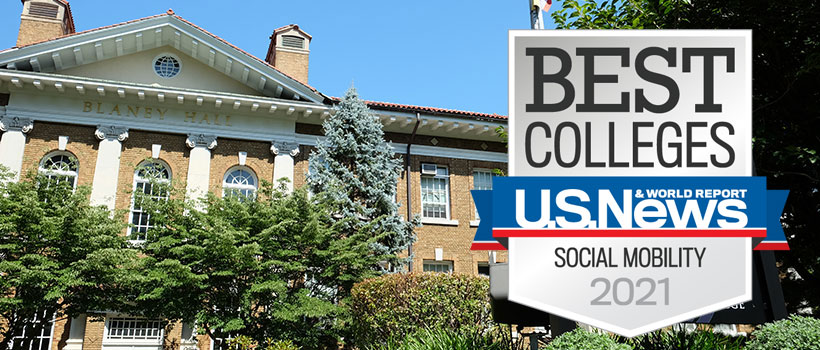
For the tenth year in a row, Cedar Crest College has been named among the top colleges in the nation by U.S. News and World Report’s Best College Rankings 2021.
The college was listed at #18 in U.S. News and World Report’s Top Performer in Social Mobility among Regional Universities. This new ranking identifies colleges that are successful at advancing social mobility by enrolling and graduating significant proportions of economically disadvantaged students who are eligible for Pell Grants. Cedar Crest College was also named among the top 100 Best Regional Universities.
“At Cedar Crest College, we see first-hand the transformative power of education,” said Cedar Crest President Elizabeth M. Meade, PhD. “Our ranking among the best colleges in the nation for social mobility reflects our commitment to providing both access to high-quality education and a culture of care to ensure student success.”
Cedar Crest also appeared in several additional institutional rankings this year. Washington Monthly cited Cedar Crest College as #5 on their national 2020 Master’s University Ranking based on contribution to the public good through social mobility, research, and promoting public service. Among schools of the northeast, Washington Monthly cited Cedar Crest College as #17 in their Best Bang for Your Buck category. This spring, the college was ranked fifth on the list of the best registered nursing programs in Pennsylvania by RegisteredNursing.org.
The College was recognized last fall by the Council of Independent Colleges for educating women to complete STEMbachelor’s degrees who then go on to earn PhDs. Cedar Crest was ranked in the top 20 nationally for 2007-2016 Women in Chemistry Doctorate Recipients, by Institutional-Yield Ratio. Cedar Crest was also listed in the nation’s top 100 for Women PhDs in Life Sciences, Physical Sciences, Biological Sciences, and overall STEM Doctorate Recipients. The CIC study, “Strengthening the STEM Pipeline Part II,” explored how small and mid-sized private institutions prepare graduates for future study and research in STEM focusing on students who have been historically underrepresented in STEM fields—specifically women, blacks or African Americans, and Latinos/Latinas.